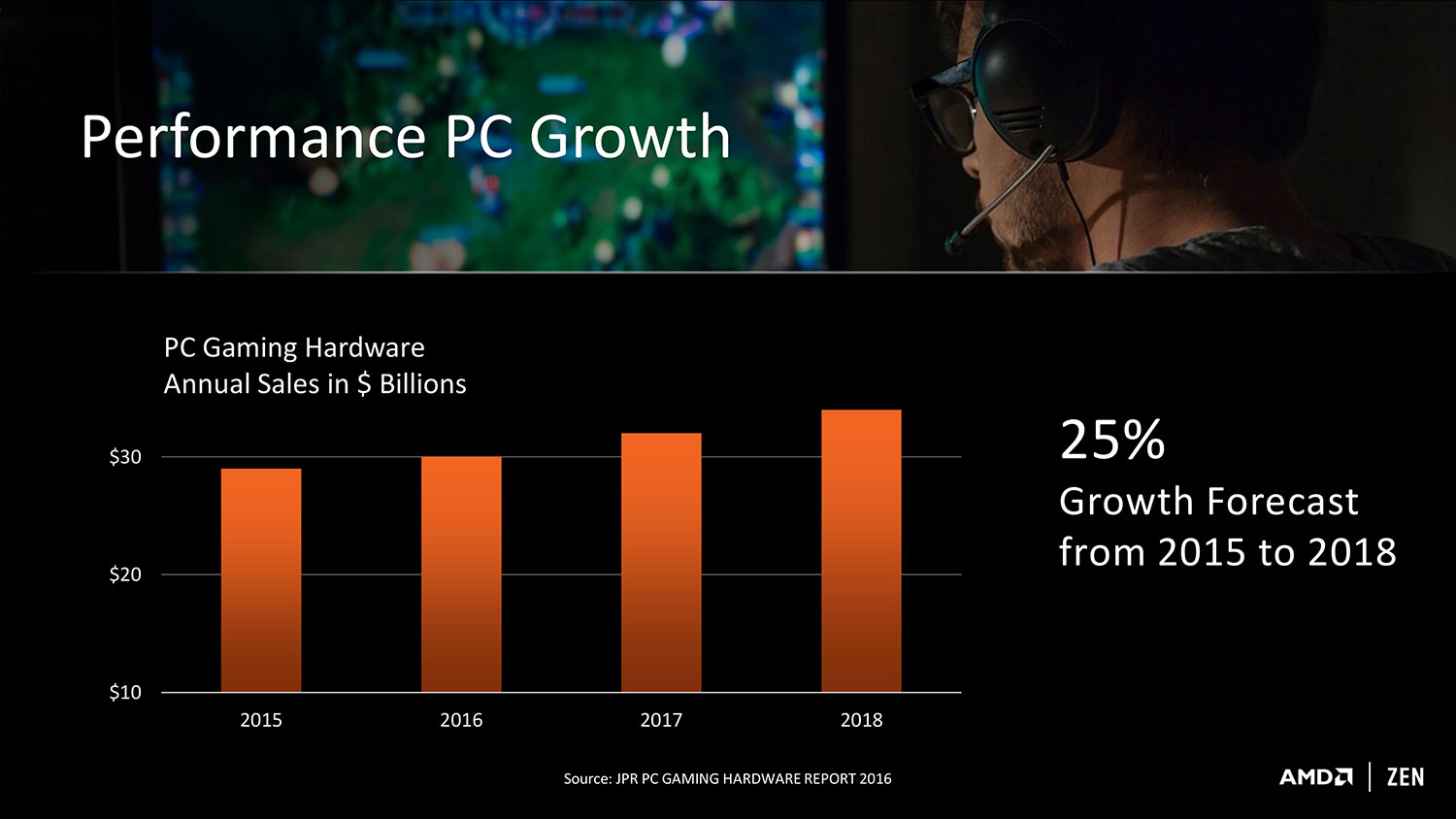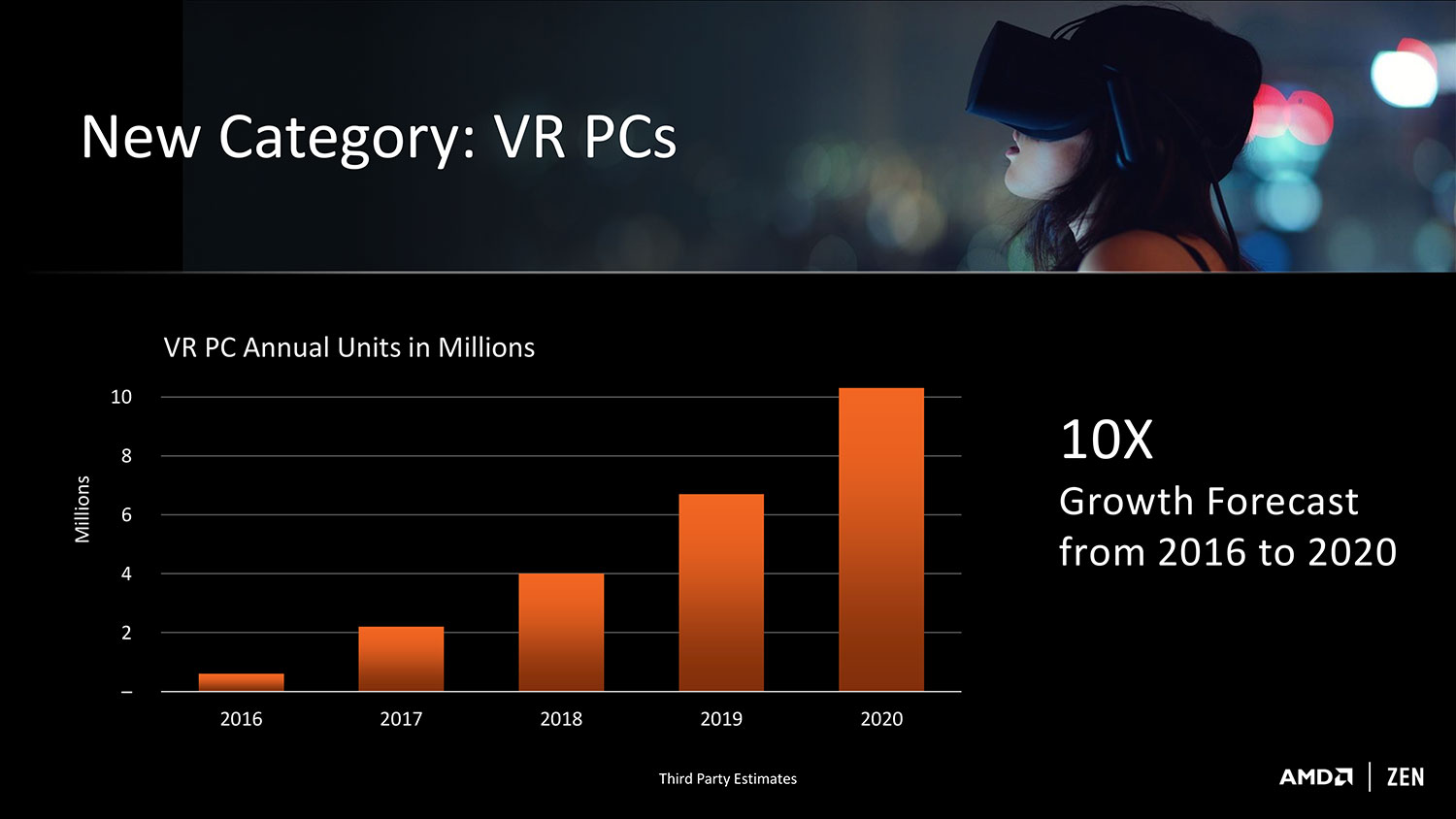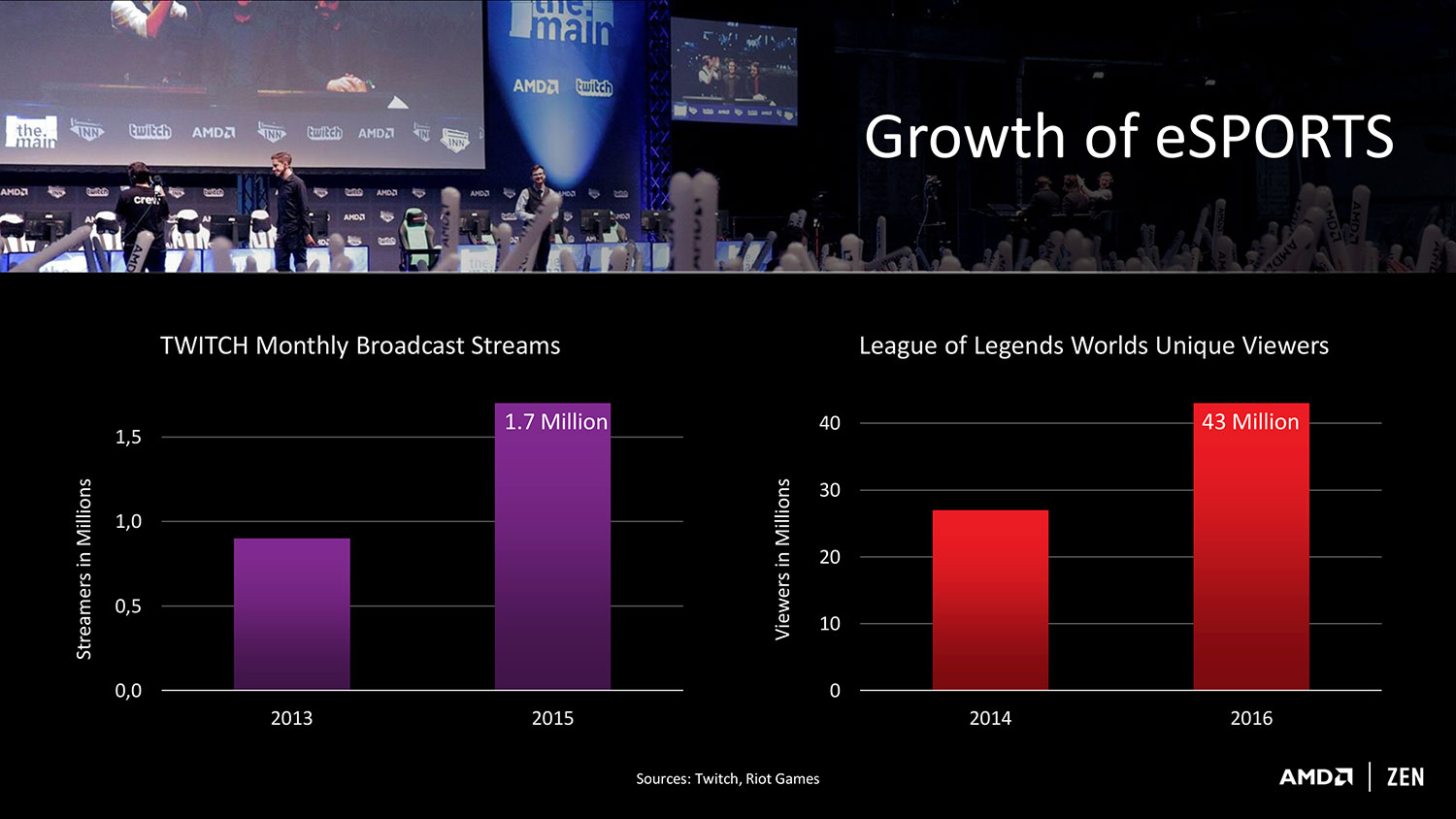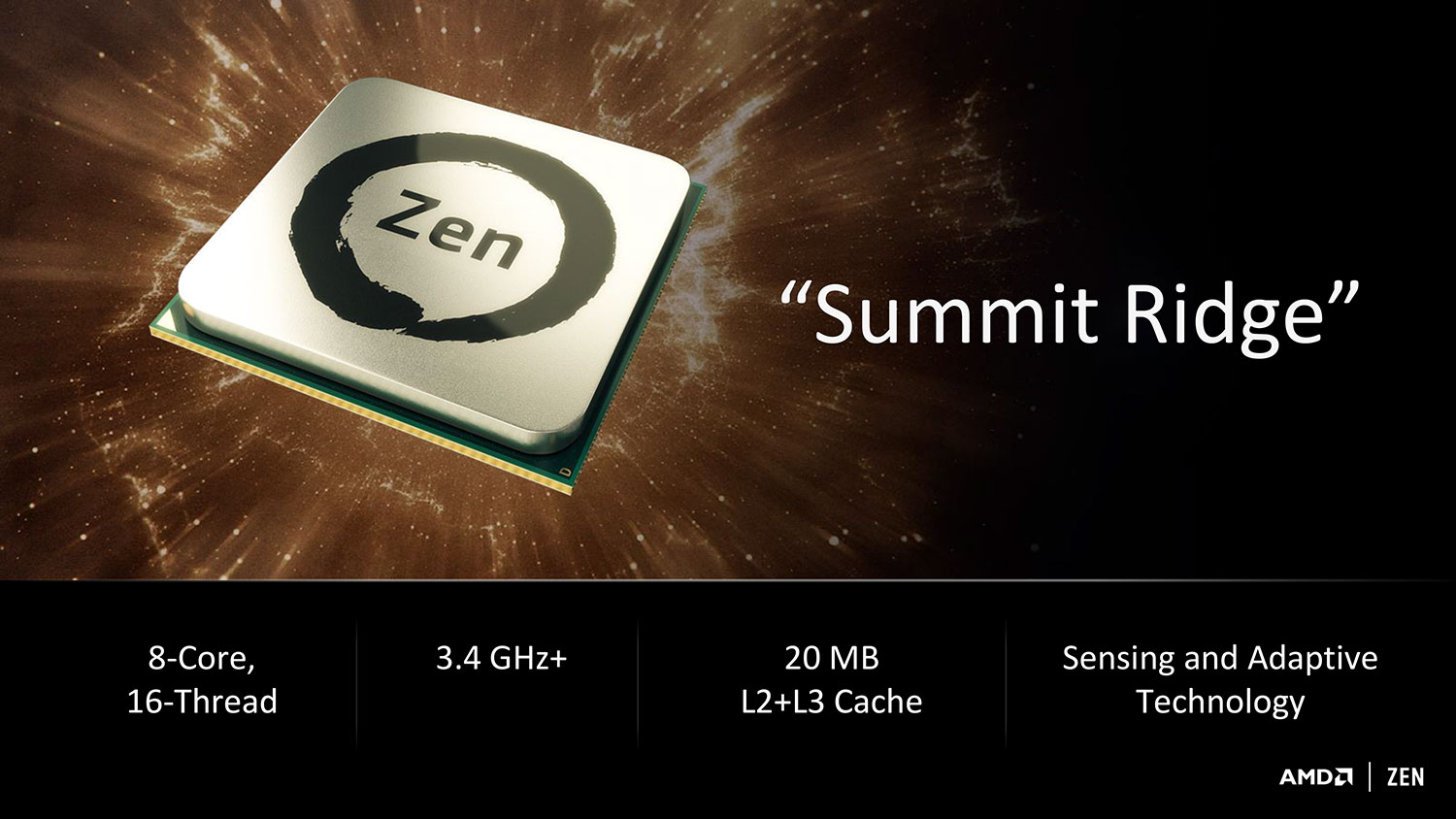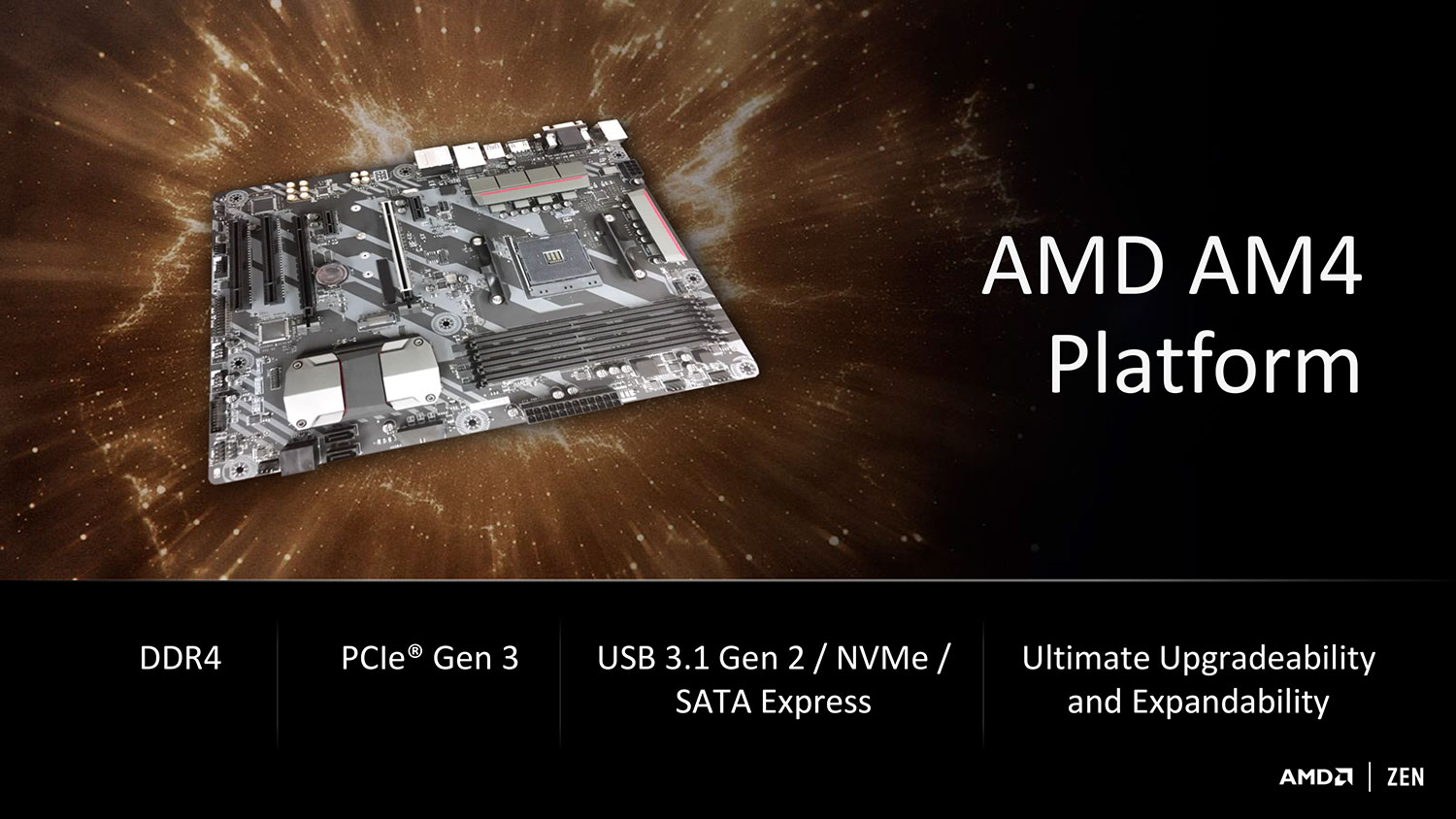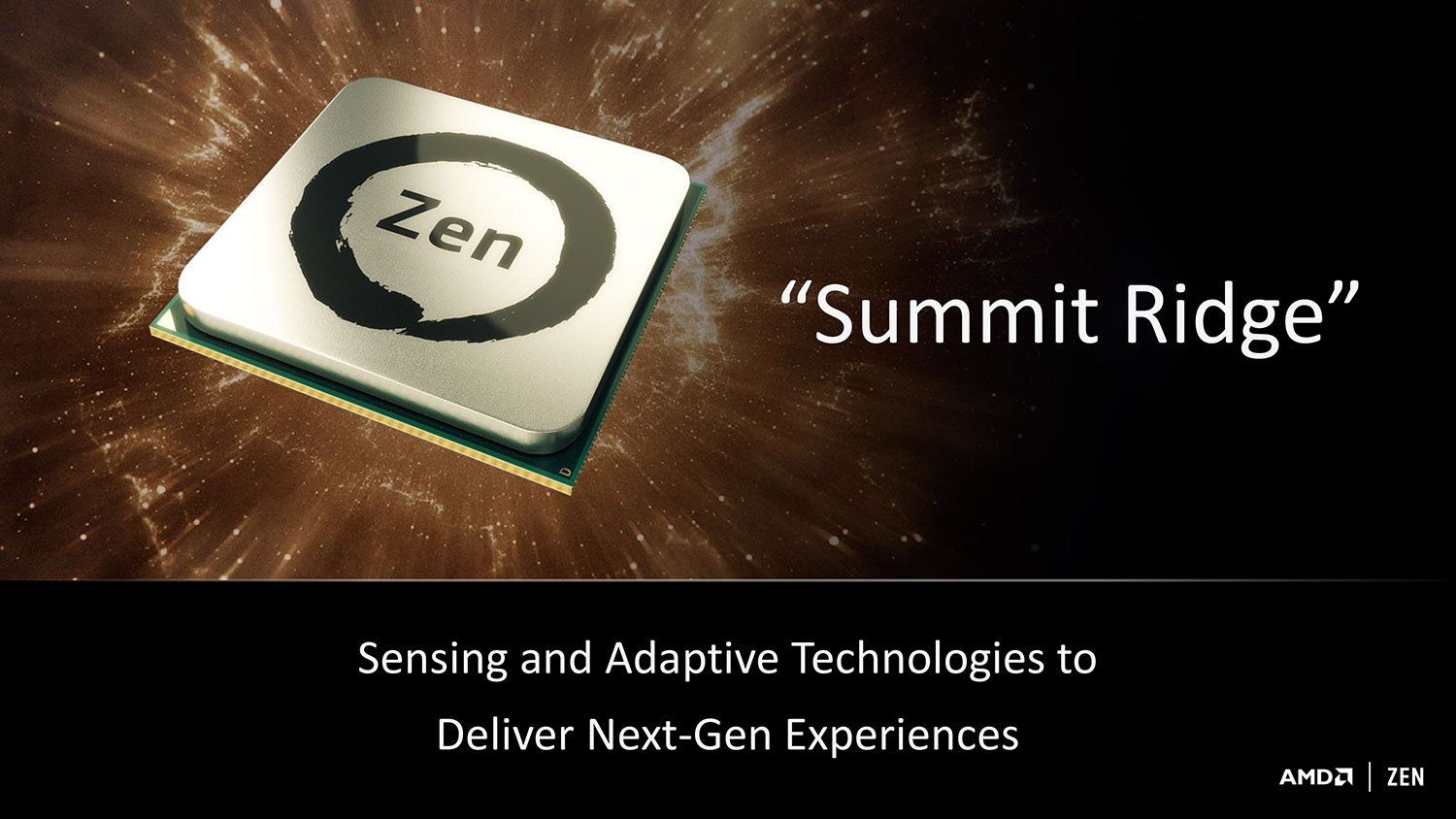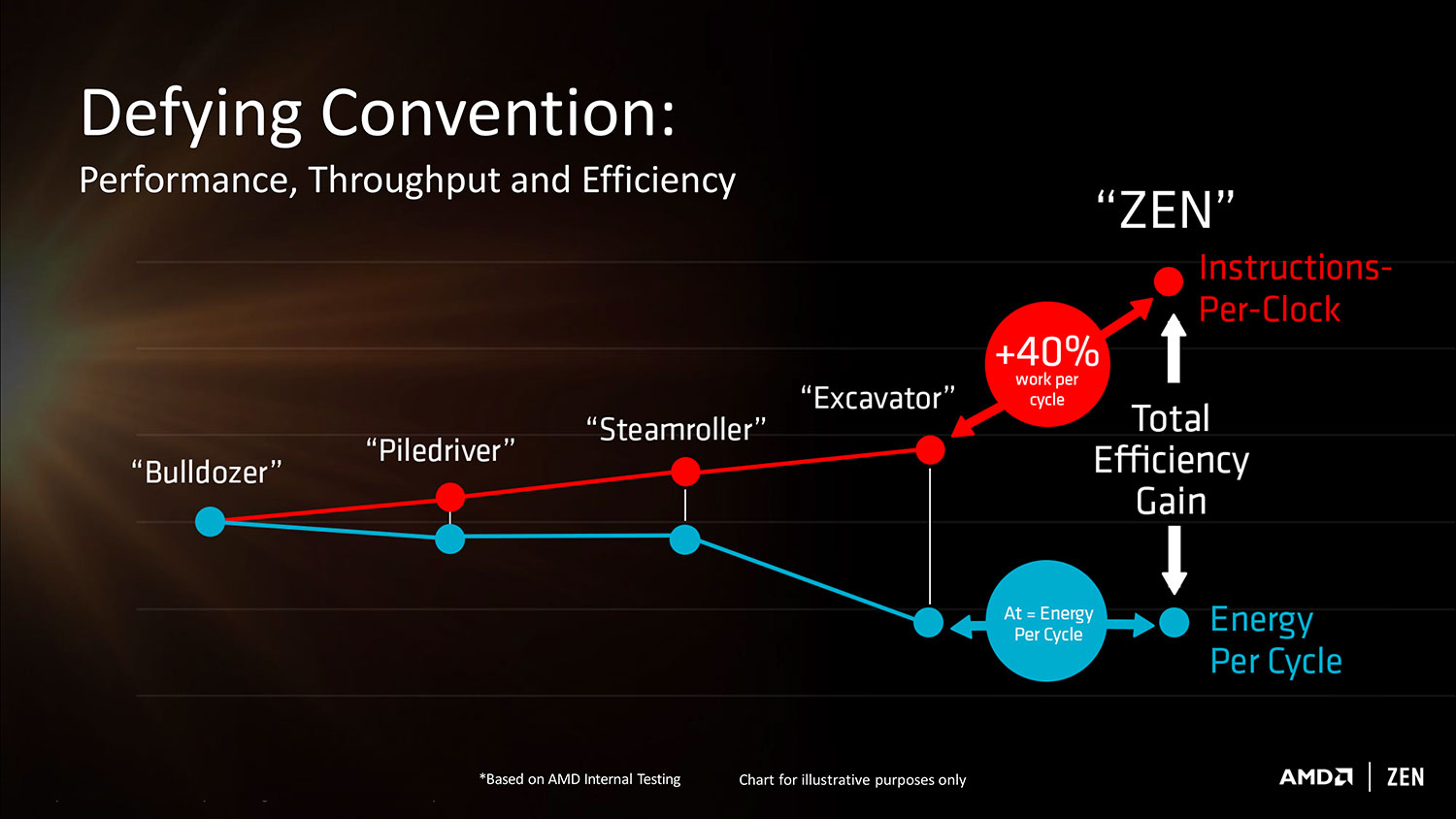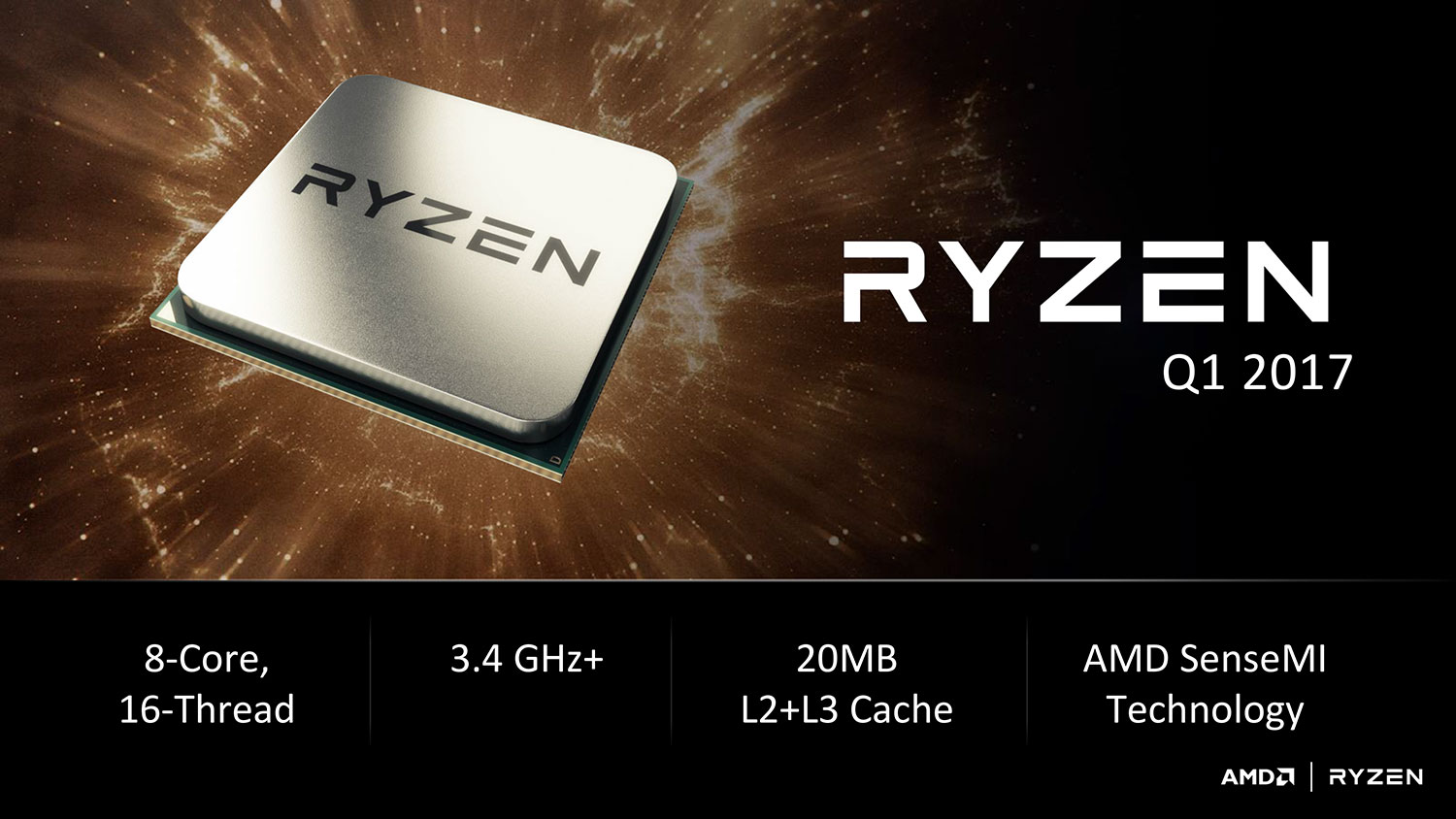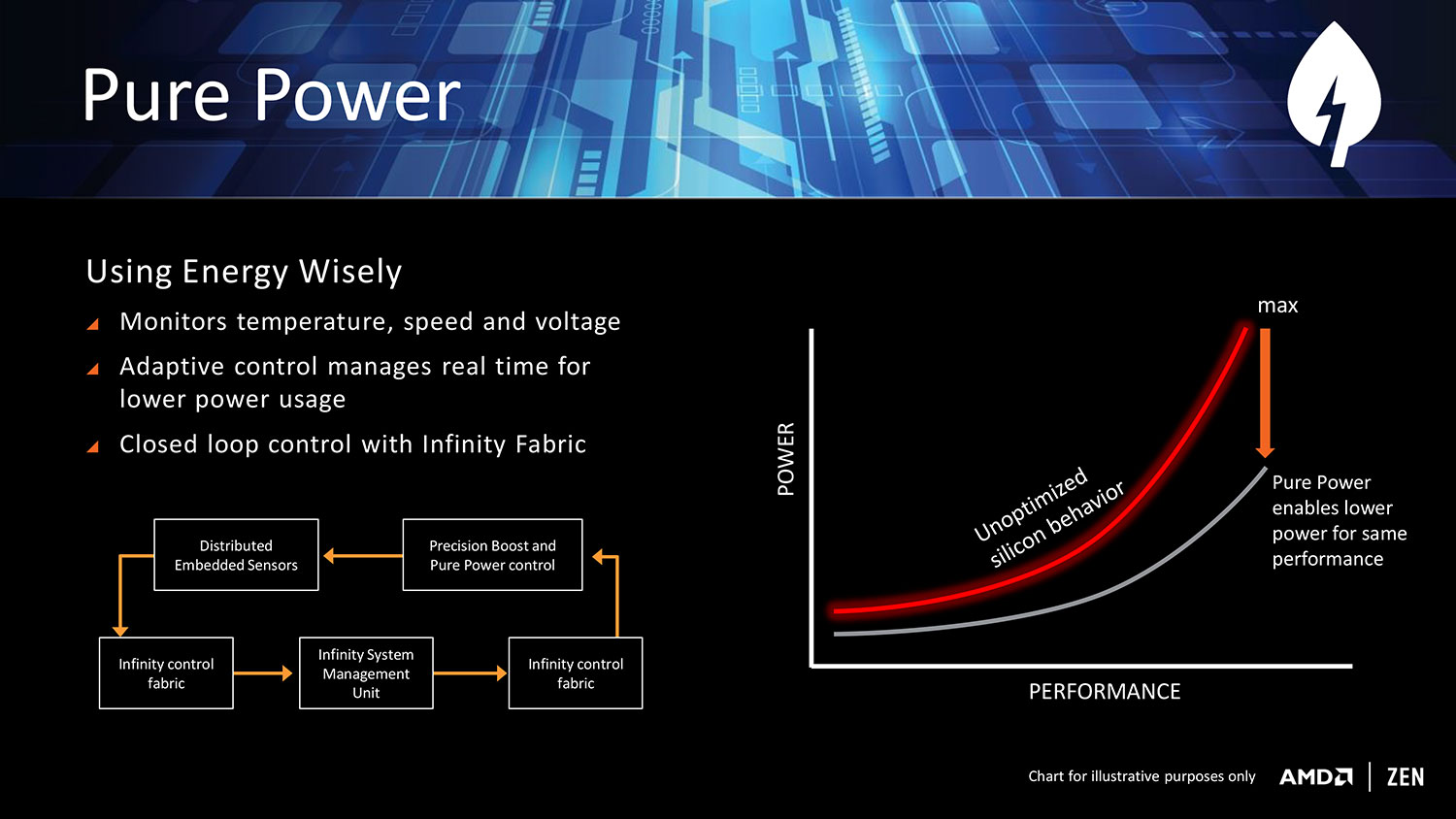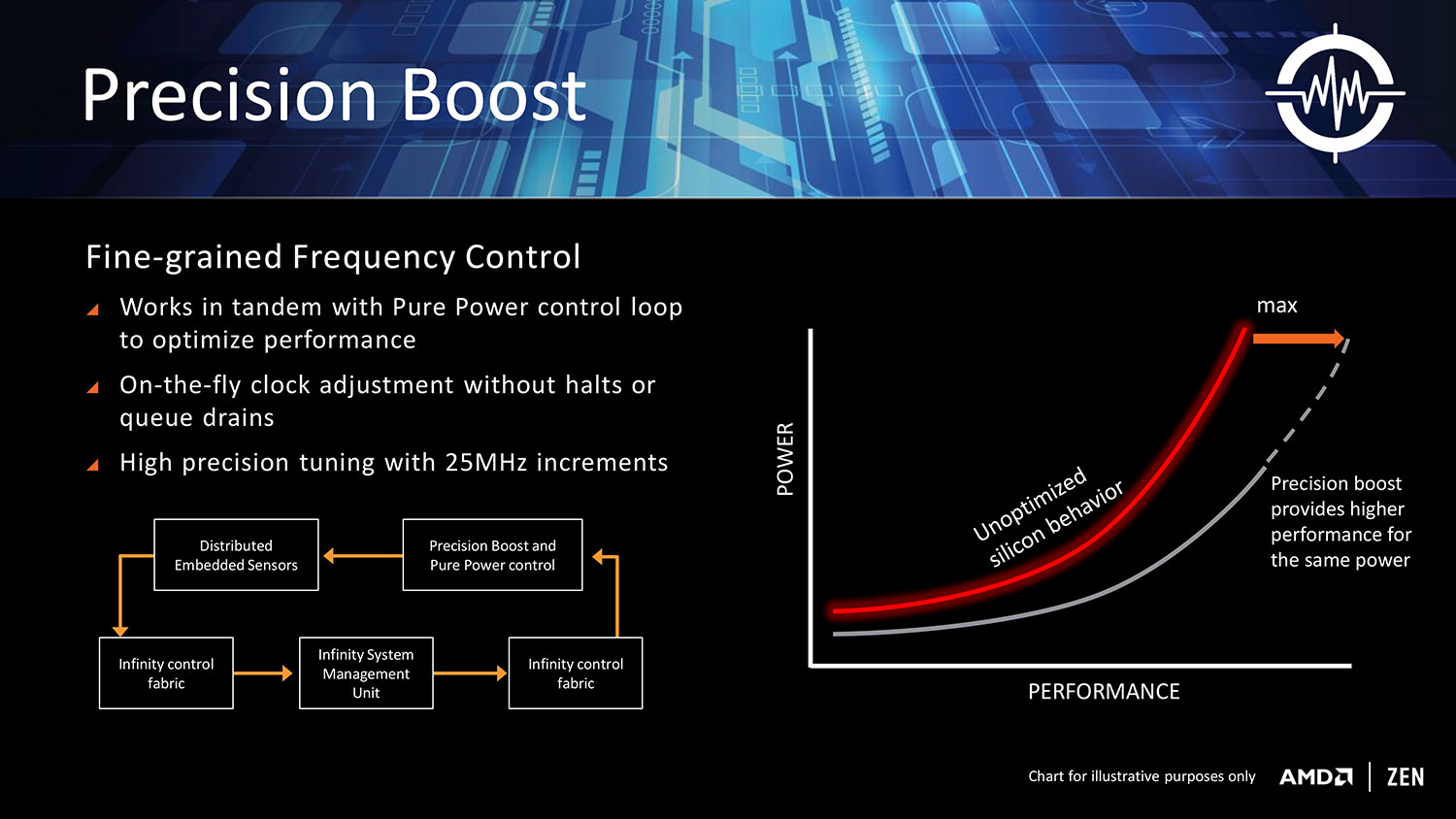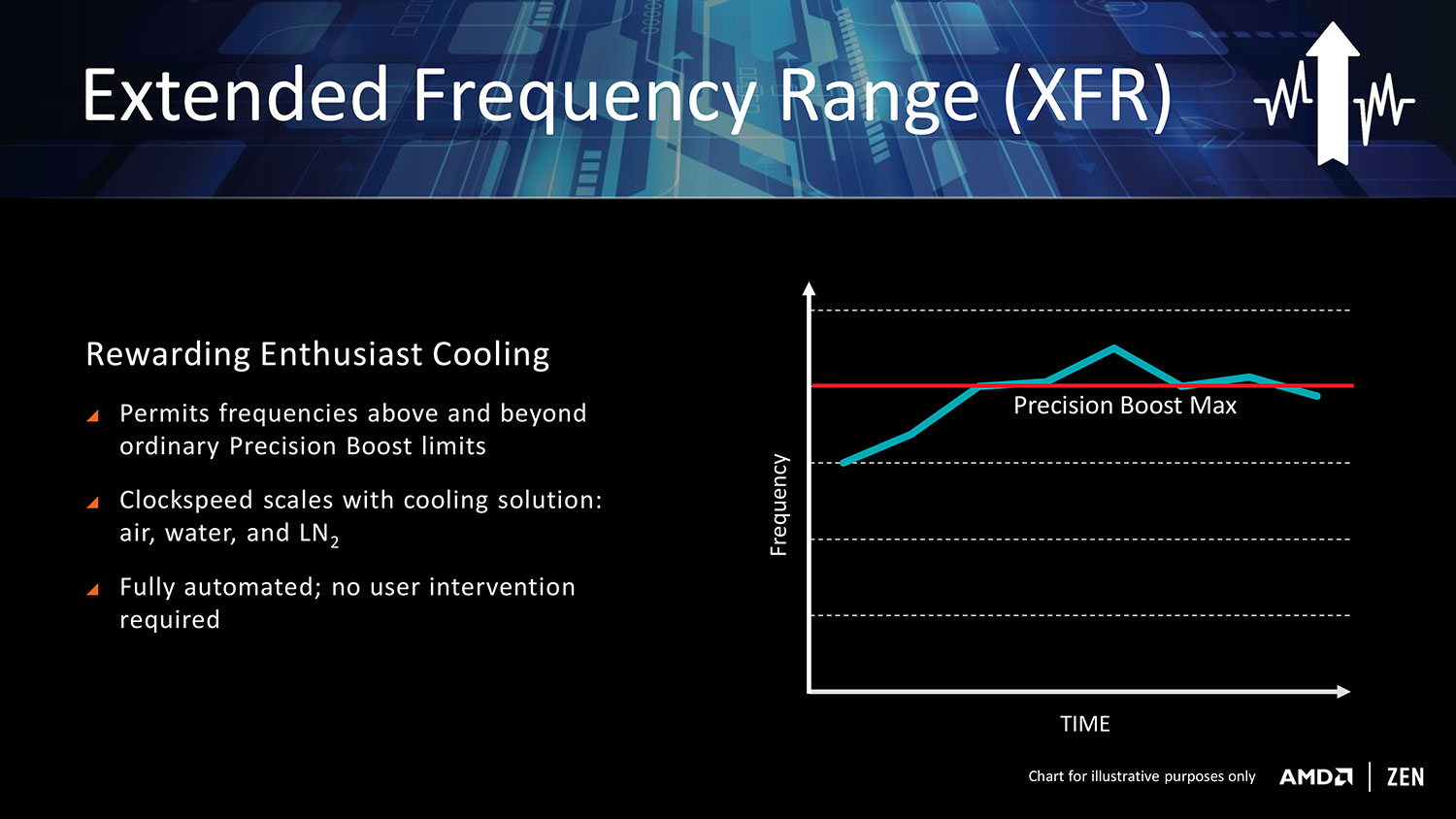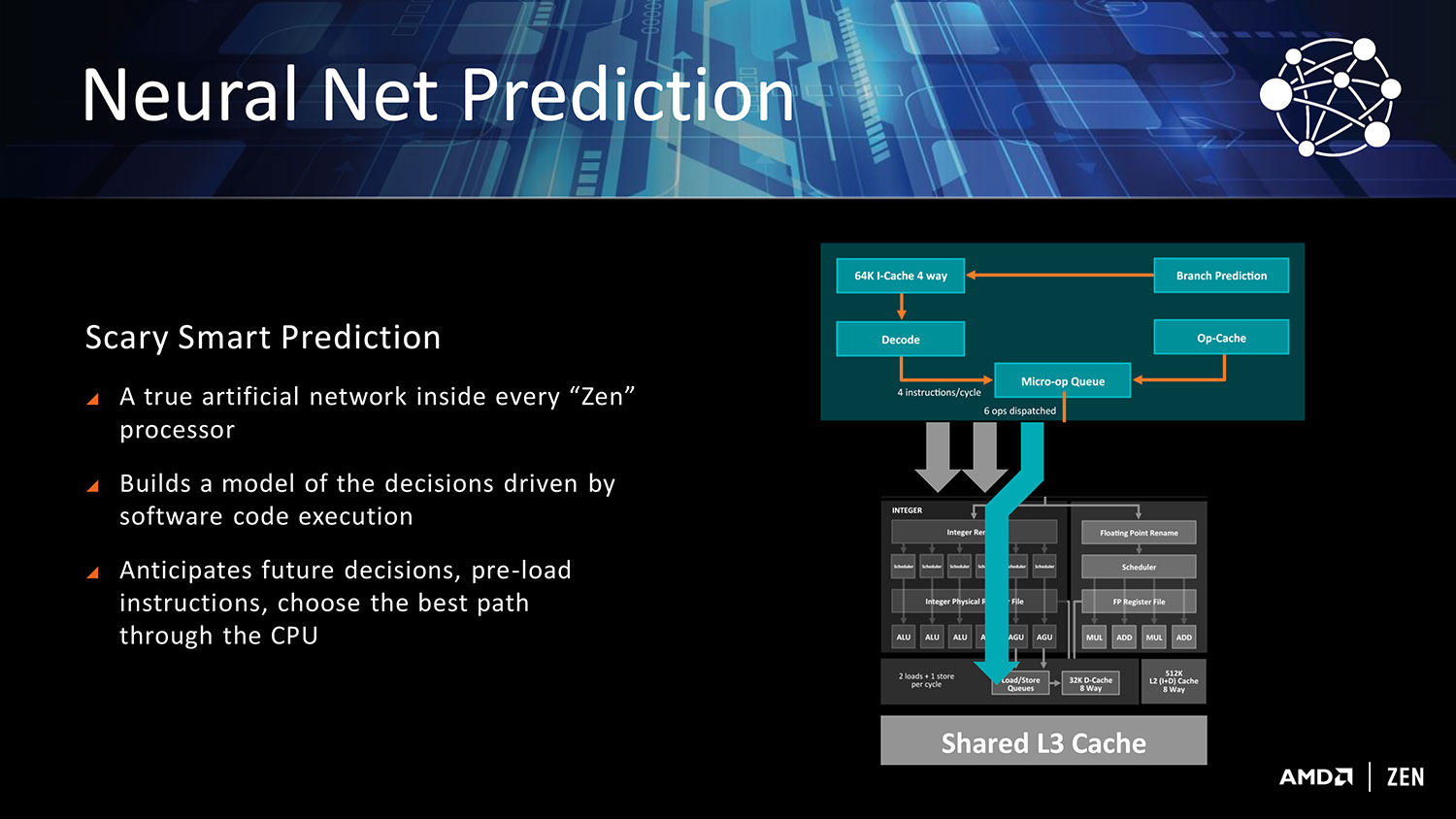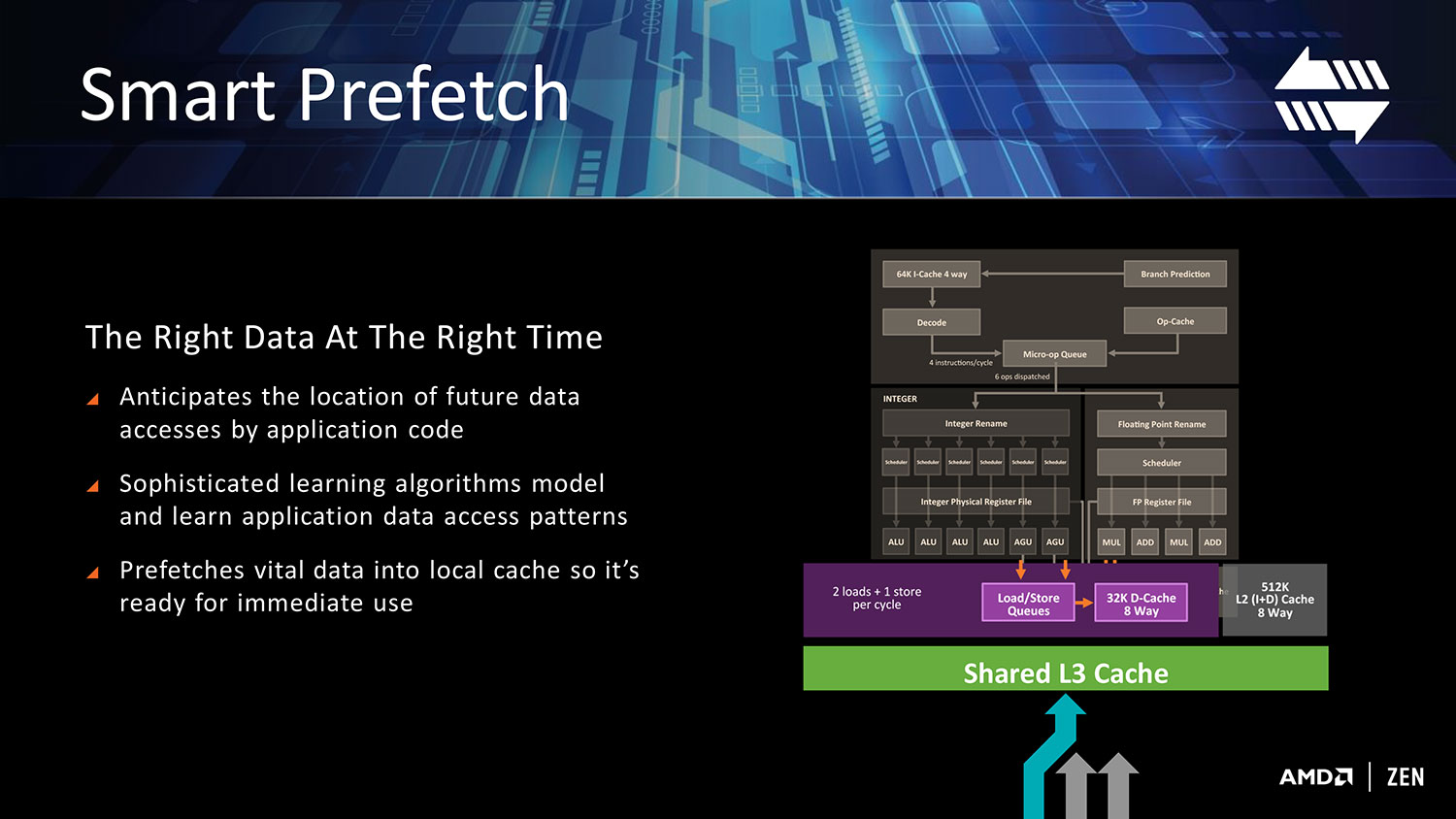At AMD’s New Horizon event we caught a sneak peek at the upcoming Zen CPU, and we found out its new name: Ryzen. During the event AMD CEO Dr. Lisa Su proudly announced the new branding, as well as some of the upcoming chip’s impressive specs.
Built “from a blank sheet of paper,” according to AMD CEO Dr. Su, to deliver unprecedented performance at impossibly low wattage, Ryzen has some impressive stats and brand new features which set it apart from the competition.
The new chip meets, and beat AMD’s own internal goals, delivering more than a 40 percent improvement in instructions-per-clock when compared to previous AMD hardware. Put another way, this means each Ryzen core delivers better performance at any given clock speed.
Speaking of cores, Ryzen was show with eight, each with two threads, for a total of sixteen threads. There’s a massive L2+L3 cache of 20MB, and AMD quoted a base clock of 3.4GHz.
We still don’t know what the Ryzen’s boost speeds might be, but at this point, even without the performance gains a turbo-boost setting would allow, AMD says Ryzen is an even match for Intel’s top-end Core i7-6900K.
In a pair of dramatic head-to-head benchmarks, the Ryzen matched the i7-6900K’s performance in a Blender benchmark, and edged out the Intel CPU in the Handbrake benchmark, by five seconds.
The most impressive part? Ryzen is said to accomplish this at a lower wattage than the Intel chip. Ryzen has a thermal design power of 95 watts, while the Core i7-6900K it was compared to has a TDP of 140 watts.
The features set it apart
There’s more to Ryzen than just core counts and speeds. AMD says it has features that will make the chip one of the most intelligent CPUs on the market. Ryzen is equipped with advanced machine intelligence capabilities, which allow it to learn how your applications behave, and anticipate what data a particular application will need based on prior experience.
These intelligent capabilities are what AMD is calling the Ryzen’s “SenseMI” technology, which pairs Neural Net Prediction with Smart Prefetch. The Neural Net feature attempts to predict how programs will be processed based on past runs, to optimize for the software on-the-fly. Smart Prefetch, meanwhile, lets the chip seek out information it believes it will need, so it’s readily available when called for.
Each Ryzen chip will adjust its maximum boost clock based on available thermal overhead, which is tracked by “more than 100” embedded sensors that gauge power draw and operating temperatures. AMD calls this Pure Power.
From there, if you have what CEO Dr. Su calls “premium cooling,” Ryzen will unlock higher clock speeds that it has determined to be safe based on its environment. Whether that’s a simple fan or a liquid nitrogen evaporating setup, the chip will continually work as hard as it can, without you lifting a finger. AMD calls this Extended Frequency Range, or XFR for short.
That works hand-and-hand with Precision Boost, which is similar to the Turbo Boost feature found on Intel CPUs, or the boost clock on a GPU. It dynamically changes the maximum speed in 25MHz increments, so you never have to worry about setting an overclock or maximum clockspeed.
Combined, AMD believes these optimizations will help its Ryzen hardware make the most of what’s available, drastically increasing performance-per-watt.
New processors also mean new chipsets, and Ryzen is no exception. The top-end AM4 chipset, known as X370, adds support for DDR4 memory at up 2,400MHz, PCIe Gen 3, USB 3.1 at 10Gbps, and of course support for NVMe and SATA Express drives.
The actual list of SKUs is still a bit of a mystery heading into the event, although there is some speculation. Pricing also remains unannounced.
However, AMD did confirm it’s on track for release in the first quarter of 2017. That means we should see the processors in stores before spring. Hold on, AMD fans — your long awaited CPU upgrade is almost here.

